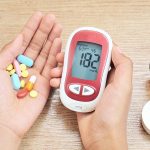What Is The Safest Drug For Psoriatic Arthritis?

Psoriatic arthritis (PsA) is a type of inflammatory arthritis that affects people with psoriasis, a chronic skin condition that causes patches of thick, red, and scaly skin. PsA can cause joint pain, stiffness, and swelling, and if left untreated, it can lead to joint damage and disability.
There are several drugs available for the treatment of PsA, but some are safer than others. The safest drug for PsA depends on the patient’s individual circumstances, such as the severity of their PsA, age, sex, medical history, and other health conditions. In this article, we will discuss the different drugs used to treat PsA and their safety profiles, and help you make an informed decision about the best treatment for you.
Nonsteroidal anti-inflammatory drugs (NSAIDs)
Nonsteroidal anti-inflammatory drugs (NSAIDs) are a class of drugs that are commonly used to treat pain and inflammation associated with arthritis. NSAIDs work by blocking the production of prostaglandins, which are chemicals in the body that cause inflammation, pain, and fever.
NSAIDs are available over-the-counter (OTC) and by prescription. Some of the most commonly used NSAIDs include aspirin, ibuprofen, and naproxen. NSAIDs are generally safe and effective for short-term use, but they can cause side effects if taken for long periods or in high doses. Common side effects of NSAIDs include stomach upset, heartburn, and gastrointestinal bleeding. NSAIDs can also increase the risk of heart attack and stroke, especially in people with a history of heart disease or high blood pressure.
Corticosteroids
Corticosteroids are a class of drugs that are commonly used to treat inflammatory conditions, such as PsA. Corticosteroids work by reducing inflammation and suppressing the immune system.
Corticosteroids can be taken orally, injected, or applied topically. Oral corticosteroids, such as prednisone, are often used to treat severe PsA symptoms, such as joint pain and swelling. Oral corticosteroids can cause side effects, such as weight gain, mood changes, high blood sugar, and increased risk of infections. Injected corticosteroids, such as triamcinolone, are often used to treat specific joint pain and swelling. Injected corticosteroids can cause side effects, such as pain and swelling at the injection site, and increased risk of infections.
Topical corticosteroids, such as hydrocortisone, are often used to treat PsA skin symptoms, such as redness and itching. Topical corticosteroids can cause side effects, such as skin thinning, discoloration, and increased risk of infections.
Disease-modifying antirheumatic drugs (DMARDs)
Disease-modifying antirheumatic drugs (DMARDs) are a class of drugs that are used to treat PsA by suppressing the immune system and reducing inflammation. DMARDs are often used in combination with other drugs, such as NSAIDs and corticosteroids, to improve PsA symptoms and prevent joint damage.
There are several types of DMARDs available for the treatment of PsA, including:
Methotrexate: Methotrexate is a DMARD that is often used to treat moderate to severe PsA. Methotrexate works by inhibiting the growth of cells that cause inflammation. Methotrexate can cause side effects, such as nausea, vomiting, and hair loss. Methotrexate can also increase the risk of infections and liver damage.
Sulfasalazine: Sulfasalazine is a DMARD that is often used to treat mild to moderate PsA. Sulfasalazine works by reducing inflammation and suppressing the immune system. Sulfasalazine can cause side effects, such as nausea, vomiting, and diarrhea. Sulfasalazine can also cause allergic reactions and increase the risk of infections.
Leflunomide: Leflunomide is a DMARD that is often used to treat moderate to severe PsA. Leflunomide works by inhibiting the growth of cells that cause inflammation. Leflunomide can cause side effects, such as nausea, diarrhea, and hair loss. Leflunomide can also increase the risk of infections and liver damage.
Biologic drugs
Biologic drugs are a newer class of drugs that are used to treat PsA by targeting specific components of the immune system that contribute to inflammation. Biologic drugs are usually given by injection or infusion and are often used in combination with other drugs, such as DMARDs and corticosteroids, to improve PsA symptoms and prevent joint damage.
There are several types of biologic drugs available for the treatment of PsA, including:
Tumor necrosis factor (TNF) inhibitors: TNF inhibitors are biologic drugs that are used to treat moderate to severe PsA. TNF inhibitors work by blocking the action of TNF, a protein that contributes to inflammation. TNF inhibitors include drugs such as etanercept, adalimumab, and infliximab. TNF inhibitors can cause side effects, such as injection site reactions, infections, and an increased risk of certain cancers.
Interleukin (IL) inhibitors: IL inhibitors are biologic drugs that are used to treat moderate to severe PsA. IL inhibitors work by blocking the action of IL, a protein that contributes to inflammation. IL inhibitors include drugs such as ustekinumab, secukinumab, and ixekizumab. IL inhibitors can cause side effects, such as injection site reactions, infections, and an increased risk of certain cancers.
Janus kinase (JAK) inhibitors: JAK inhibitors are biologic drugs that are used to treat moderate to severe PsA. JAK inhibitors work by blocking the action of JAK, a protein that contributes to inflammation. JAK inhibitors include drugs such as tofacitinib and baricitinib. JAK inhibitors can cause side effects, such as infections, gastrointestinal problems, and an increased risk of blood clots.
Safety considerations
When choosing a drug for the treatment of PsA, safety considerations should be taken into account. The safety profile of a drug can vary depending on the patient’s age, sex, medical history, and other health conditions. Some drugs may be safer than others for certain patients.
NSAIDs are generally safe and effective for short-term use, but they can cause side effects if taken for long periods or in high doses. NSAIDs can increase the risk of heart attack and stroke, especially in people with a history of heart disease or high blood pressure. NSAIDs can also cause stomach upset, heartburn, and gastrointestinal bleeding.
Corticosteroids can be effective in treating severe PsA symptoms, but they can cause side effects, such as weight gain, mood changes, high blood sugar, and increased risk of infections. Injected corticosteroids can cause pain and swelling at the injection site, and increase risk of infections. Topical corticosteroids can cause skin thinning, discoloration, and increased risk of infections.
DMARDs can be effective in suppressing the immune system and reducing inflammation, but they can cause side effects, such as nausea, vomiting, and hair loss. Methotrexate, a commonly used DMARD, can increase the risk of infections and liver damage. Sulfasalazine can cause allergic reactions and increase the risk of infections. Leflunomide can cause nausea, diarrhea, and hair loss, and increase the risk of infections and liver damage.
Biologic drugs can be effective in treating moderate to severe PsA, but they can cause serious side effects. TNF inhibitors can increase the risk of infections, including tuberculosis and fungal infections, and can also increase the risk of certain cancers, such as lymphoma. IL inhibitors can also increase the risk of infections and certain cancers. JAK inhibitors can increase the risk of infections and blood clots.
Patients taking biological drugs should be monitored closely for signs of infections and other side effects. Patients with a history of infections or cancer may not be suitable candidates for biological drugs. Patients taking biological drugs should also be monitored for signs of heart disease and liver damage.
In general, patients with PsA should be closely monitored by a healthcare professional to ensure that the chosen treatment is effective and safe. Patients should also be aware of the potential side effects of their medication and report any unusual symptoms to their healthcare professional.
Conclusion
PsA is a chronic inflammatory disease that can cause joint pain, stiffness, and damage. There is no cure for PsA, but there are several treatments available that can help manage symptoms and prevent joint damage. The choice of treatment will depend on the severity of the disease, the patient’s medical history, and other health conditions.
NSAIDs, corticosteroids, DMARDs, and biological drugs are all used to treat PsA. Each drug has its own benefits and risks, and the choice of drug will depend on the patient’s individual needs.
NSAIDs are generally safe and effective for short-term use, but they can cause side effects if taken for long periods or in high doses. Corticosteroids can be effective in treating severe PsA symptoms, but they can cause side effects, such as weight gain, mood changes, and increased risk of infections. DMARDs can be effective in suppressing the immune system and reducing inflammation, but they can cause side effects, such as nausea, vomiting, and hair loss. Biologic drugs can be effective in treating moderate to severe PsA, but they can cause serious side effects, such as infections and certain cancers.
Patients with PsA should be closely monitored by a healthcare professional to ensure that the chosen treatment is effective and safe. Patients should also be aware of the potential side effects of their medication and report any unusual symptoms to their healthcare professional.
In summary, there is no single safest drug for PsA. The choice of drug will depend on the severity of the disease, the patient’s medical history, and other health conditions. Patients with PsA should work closely with their healthcare professionals to determine the best treatment plan for their individual needs.





